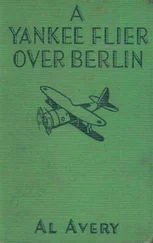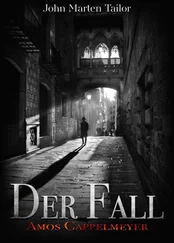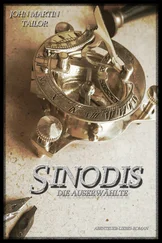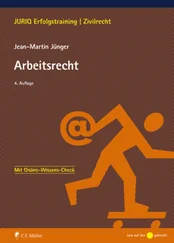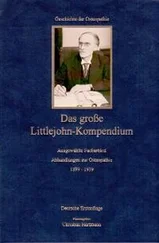We all wondered what Jock’s next move would be because he could not play this out much longer. He was now standing almost at the side of a very angry and impatient Gestapo officer, the kind who were not known for their kindness to prisoners. Jock now moved slowly and thoughtfully to the opposite side of the shaft once more and looked into the hole again. Eventually, when he was ready, he scratched his head, then turned to the officer and, with his face the picture of innocence, said, ‘Well look at that, rats.’
The Gestapo officer exploded. He threw his arms in the air and his whole body went up with both feet well clear of the ground. He was barely in control of himself. Spitting and fuming as he did so, he screamed back, ‘Rats? Rats? Do you think we are stupid?’ Then, without waiting for Jock’s answer, he motioned to the guard who had escorted Jock in, shouting, ‘Cooler.’ The guard sprang to attention and off they went with Jock giving one of his rare smiles.
The Cooler was the name given to the detention centre or punishment cells where sentences for misbehaviour were served. Usual punishment would vary between one and fourteen days according to the seriousness of the misbehaviour. Jock was given, I think, four days by the Camp Commandant, which was lenient. Perhaps it was his way of ‘getting back’ at the Gestapo. Even so, the Cooler was not a pleasant place to be in◦– absolute solitude and the food was even more sparse than usual.
*
Life went on in K Lager and we were always hungry, sometimes very hungry. While it seemed that there was no change in the progress of the war, prisoners kept each other going morale wise. There was often someone ready to throw himself at the wire and make an end to it, but luckily there was always a friend who would boost his spirits enough to prevent this.
There was one prisoner who would tantalise those around him, usually just before they were about to get to sleep, by saying loudly what he was going to have for breakfast on the first morning he got home again. He would reel off a mouth-watering menu of eggs, bacon, sausage, mushrooms, tomatoes, black pudding and lashings of hot buttered toast, accompanied by hot sweet tea or coffee with real milk and plenty of sugar. He would then start to say what he would have to follow, but would always be shouted down, or have something thrown at him. Only those who have been very hungry for a long time would appreciate his cruel humour, but it always finished with a laugh, so it must have done a bit of good and it was only what everyone thought, often.
*
As the weather got a bit warmer life became a little easier because the mud dried up and a walk round the circuit became more enjoyable. The distant pine trees surrounding the camp appeared a little less mournful and forbidding, but the craving for food continued.
*
June 6, 1944, started as a miserable day, dull and windy, and the secret radio bulletin had told us it was Derby Day in Great Britain. Some of those more interested in horse racing had organised a simulation of the race out on the parade ground; a bit like a huge Ludo game scratched out on the ground. Punters could lay bets in cigarettes with self-appointed bookmakers, but the race never finished.
As the race progressed some very, very important and breath-taking news began spreading amongst the POWs◦– the Allies had landed in Normandy that morning.
It was only after the news had been posted on the official German notice board, and individuals read the notice twice over to make sure they had read it right, and then raced back to their huts, that the news was spread. As it did so, cheer after cheer rang out from some, while others hid their faces and just cried.
That dramatic news was contained in one first sentence of the German notice, and then it went on to claim that this was just what they had been waiting for. At last the Allies had delivered themselves to them, and now a pincer movement would be applied and those invaders who had not been wiped out would be driven back into the sea. This claim was not even discussed by us POWs to my knowledge. As far as we were concerned, the Allies had landed and that was that. The wonderful, almost unbelievable, news was confirmed when a BBC bulletin was read out in each hut at midday. With such an optimistic account of the progress that had been made, even the most pessimistic were now speculating on when we would be freed. Little did we know of what was to come◦– that it would take far longer than we could anticipate and that for too many, liberation never came, while thousands had to suffer terrible hardship before they were returned to their beloved homelands.
*
As a week or so went by, with no significant advance from the beachheads, a feeling of anti-climax began to set in. We were not made aware of the bitter battles our armies were fighting in attempting to take the city of Caen, or we would have been much more grateful for what they were achieving and prepared to wait in our comparative safety. However, as the weeks wore on, even the most pessimistic were asking, ‘Will it be next week or the week after when the British Liberation Army will smash down the gates to set us free?’
*
At some point in July 1944 we noticed an obvious change in morale amongst the Germans who were guarding us, which I believe was shared by all German forces, wherever they were serving, and probably all German citizens as well. This followed the attempted assassination of Hitler in East Prussia, which could not have been that far from our Stalag in the north of the country.
The first sign of change was at morning roll call when at its completion our leader saluted the German officer in charge as normal, but this was not returned, as it always was, with a similar salute, but with a salute that everyone knew to be the Nazi one; the right arm and hand was stretched fully forward and slightly raised. It seemed that Hitler had called all his ordinary, purely military personnel, to heel, and reminded them who was boss. (What we did not know then was that control of the Allied prisoner of war camps was handed over to the SS commander, Himmler, following the assassination attempt.)
The new salute, however, was a mere detail of the change and thankfully the guards were not more aggressive to the prisoners; whatever had been inflicted on them was not to be passed on to us. It seemed, if anything, that it was to be kept secret.
From then on, the ordinary salute was not seen to be used by any German, but some of the fear that we guessed they were under◦– that of being posted to the Russian Front◦– gradually came to light. Some of our guards had already been there and, quite unofficially of course, being sure they could not be overheard, would disclose some of the horrors they had been through there. They declared that the Russians were not like British or German soldiers◦– they were ‘animals’ and did not care how many of them were killed in gaining an inch of ground.
Knowing this, but not risking a blow from a rifle butt by saying it to anyone but a guard known to be a bit amiable, who would accept a bit of teasing, prisoners might ask, looking very serious, ‘Russian front, Herr Smitt?’ They knew what his self-comforting answer would be◦– ‘Nein. Nein. Too old’, but we noticed that some of the old guards did disappear, very noticeably the German Warrant Officer.
He was a very firm man, but fair, and we knew what to do and what not to do when he was about. He was not a Nazi, but a true professional regular soldier. We felt safe with him, so although it might sound strange, we thought we had suffered a loss.
*
When the true horrors of the Concentration Camps were revealed in April 1945, ordinary Germans claimed to have no knowledge of the Gas Chambers or the primitive barbaric burning of the bodies. However, just after the attempted assassination of Hitler◦– remember that was in July 1944 – a new phrase began to circulate around the camp◦– ‘If you do not behave, you will go up the chimney.’ This was not used by the guards as a new threat to us but, I imagine, it was a thing that they themselves had been threatened with to tighten the newly imposed discipline.
Читать дальше

